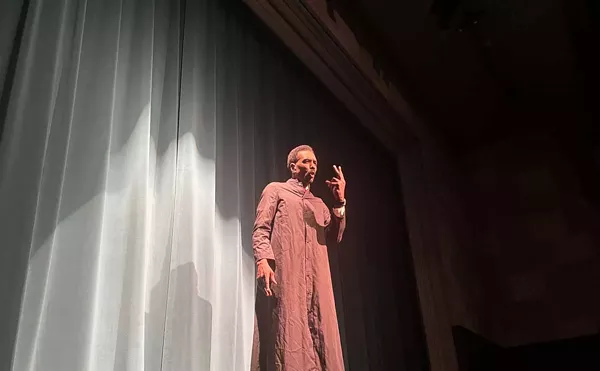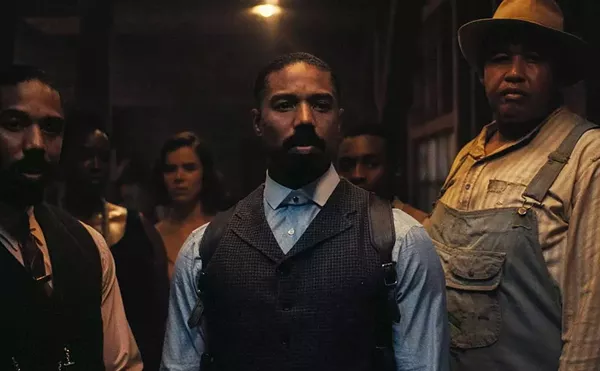
Audio By Carbonatix
[
{
"name": "GPT - Leaderboard - Inline - Content",
"component": "35519556",
"insertPoint": "5th",
"startingPoint": "3",
"requiredCountToDisplay": "3",
"maxInsertions": 100,
"adList": [
{
"adPreset": "LeaderboardInline"
}
]
}
]
The emotion best conveyed by Four Days in September, an Oscar-nominated Brazilian political docudrama, is not passion or fervor, but detachment.
Director Bruno Barreto has chosen to dramatize a real-life event that, by its very nature, would elicit strong emotions, in a manner that is so even-handed it borders on the clinical. This attitude, a stubborn refusal to take sides or favor a particular political point of view, leaves a strange aftertaste: It's the relief of not being subjected to yet another bombastic and overwrought historical drama, mixed with the strong desire to actually see some of the passion that would drive these seemingly ordinary people to extraordinary actions.
The four days of the title are Sept. 4-7, 1969, when a group of young anti-government radicals in Rio de Janeiro kidnapped and held hostage the U.S. ambassador to Brazil, Charles Burke Elbrick (a restrained and formal Alan Arkin). This small band of earnest urban guerrillas was throwing stones at a Goliath &emdash; Brazil's government was then an iron-fisted military dictatorship &emdash; but the abduction of Elbrick had achievable goals: to crack the censored press and to get some political prisoners (who were routinely tortured) released.
While the film was inspired by the 1980 memoir written by kidnapper Fernando Gabeira (a journalist turned Brazilian politician), Four Days in September, scripted by Leopoldo Serran, tries vainly to cover all sides of the story.
The film spends scant screen time on its numerous characters, relying on quickly sketched types rather than individuals. Only writer Fernando (Pedro Cardoso) and revolutionary group leader Maria (Fernanda Torres) acquire some level of believable complexity (as opposed to a brutally efficient torturer's "humanizing" confession that he loses sleep over his work).
Director Bruno Barreto (Doña Flor and Her Two Husbands) describes himself as apolitical and his ambivalence shows. The participants in the events of Four Days in September seem to possess a form of prescience, as if they can already see mixed results of their actions (the dictatorship lasted another 20 years) and are aloofly committed to going through the motions.
Serena Donadoni writes about film for Metro Times. E-mail her at letters@metrotimes.com.





